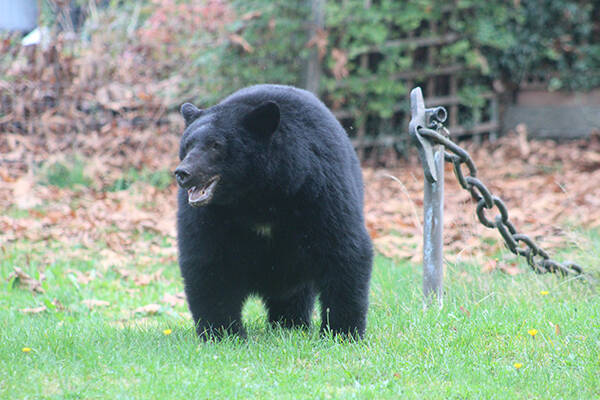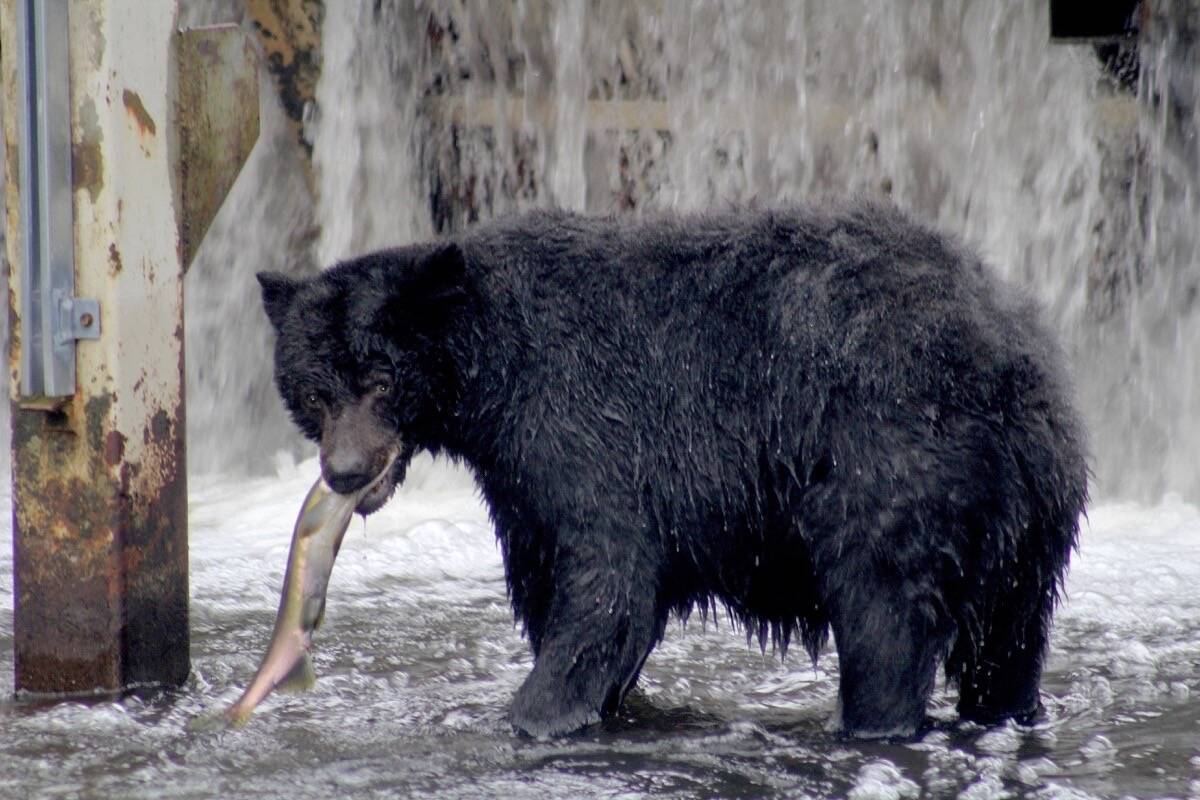Comox Valley resident Terry Walker had an untimely encounter with a bear when he went for a swim on a hot day early September in the Tsable River near Fanny Bay.
The river was more like a creek, which he easily crossed to find a swimming hole. There was no one around, so he decided to remove his clothing. While standing on a rock and looking down river, a full-grown black bear walked out of the forest onto the river bed. The bear was looking around, sniffing the air.
“I froze,” Walker said. “They don’t have very good eyesight. He turned as if he was going to start walking upstream towards me.
“The fact that I was nude added to the stress of the moment,” he added with a laugh. “I waited until he looked away, then I scampered back to where my backpack and clothes were. I must have set a record for getting dressed quickly.”
Remembering that bears don’t like noise, he started to shout, and hit rocks with sticks until the animal disappeared.
Walker wishes to warn the public that the chance of interactions are high because bears are “coming down lower than normal.” He said the Tsable River by the Old Island Highway is teeming with salmon that have nowhere to go.
“The rivers are low, so the fish are either holding offshore, or they’re in the lower reaches concentrated, which means competition (among bears),” said conservation officer Mike Newton, sergeant for the North Island Zone (Black Creek). “Sub-dominant bears will be pushed out of feed zones, and looking for food. There will be some that can eke out a feed out of some of those concentrated pools of salmon, and others will be pushed out.”
While we can’t control Mother Nature, the B.C. Conservation Service reminds residents they can control certain things at home that might attract bears to their properties.
“Our constant messaging is to cast a very critical eye to your own property and that of your neighbours,” Newton said. “It’s a community effort, and make sure there are no attractants out at any time.”
Bear attractants include garbage, ripened fruit, barbecues and bird feeders. Newton implores residents who spot people dragging garbage to the curb the night before pickup to remind neighbours not to do so because the upsetting end result could be a bear that’s put down because it had become habituated.
“That’s one of our greatest frustrations is to see that cycle continue,” Newton said. “It has to be a community effort and responsibility.”
The public is urged to call Report All Poachers and Polluters (RAPP) at 1-877-952-7277, or bylaw control with any concerns about wild animal interactions.


